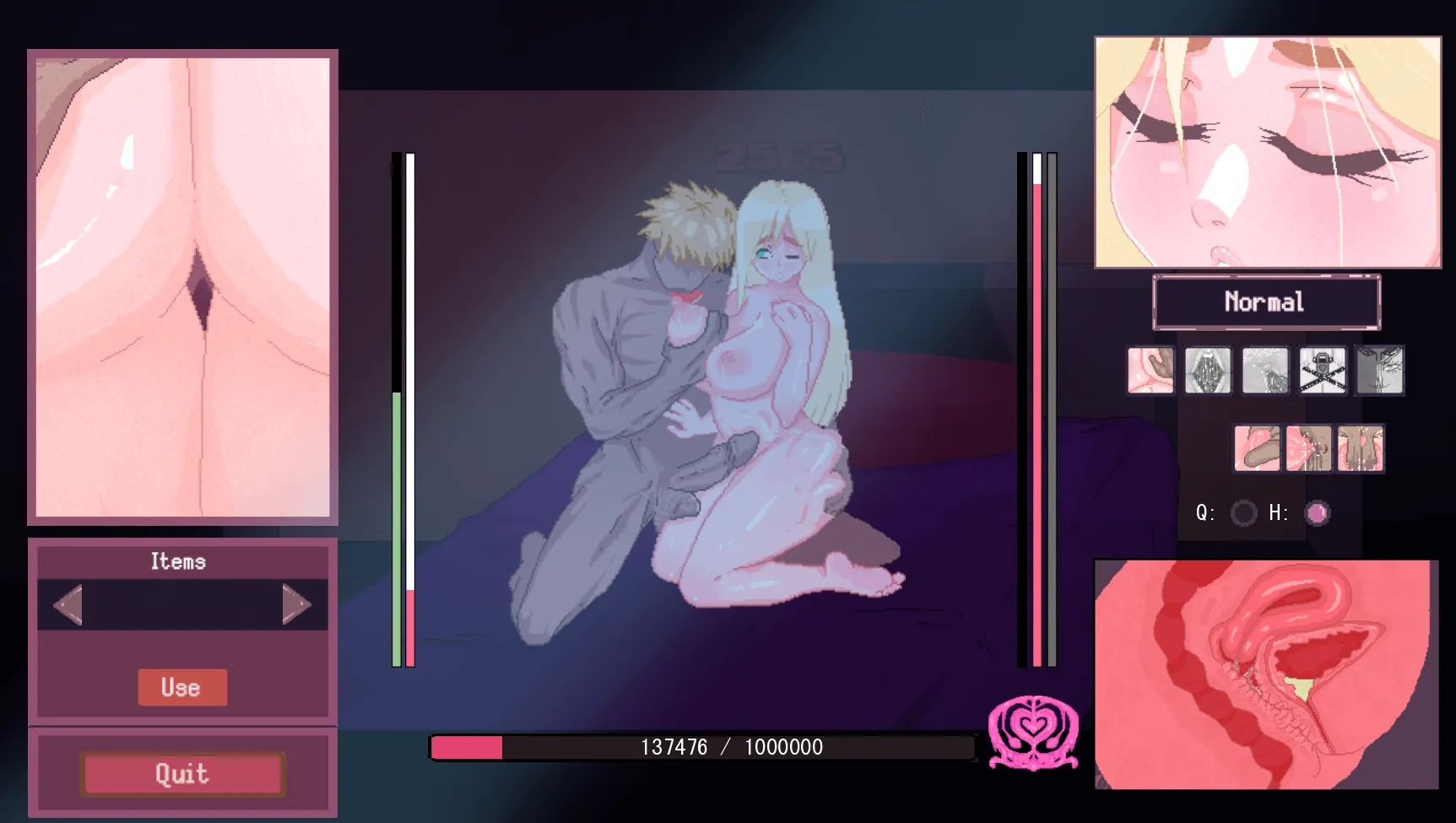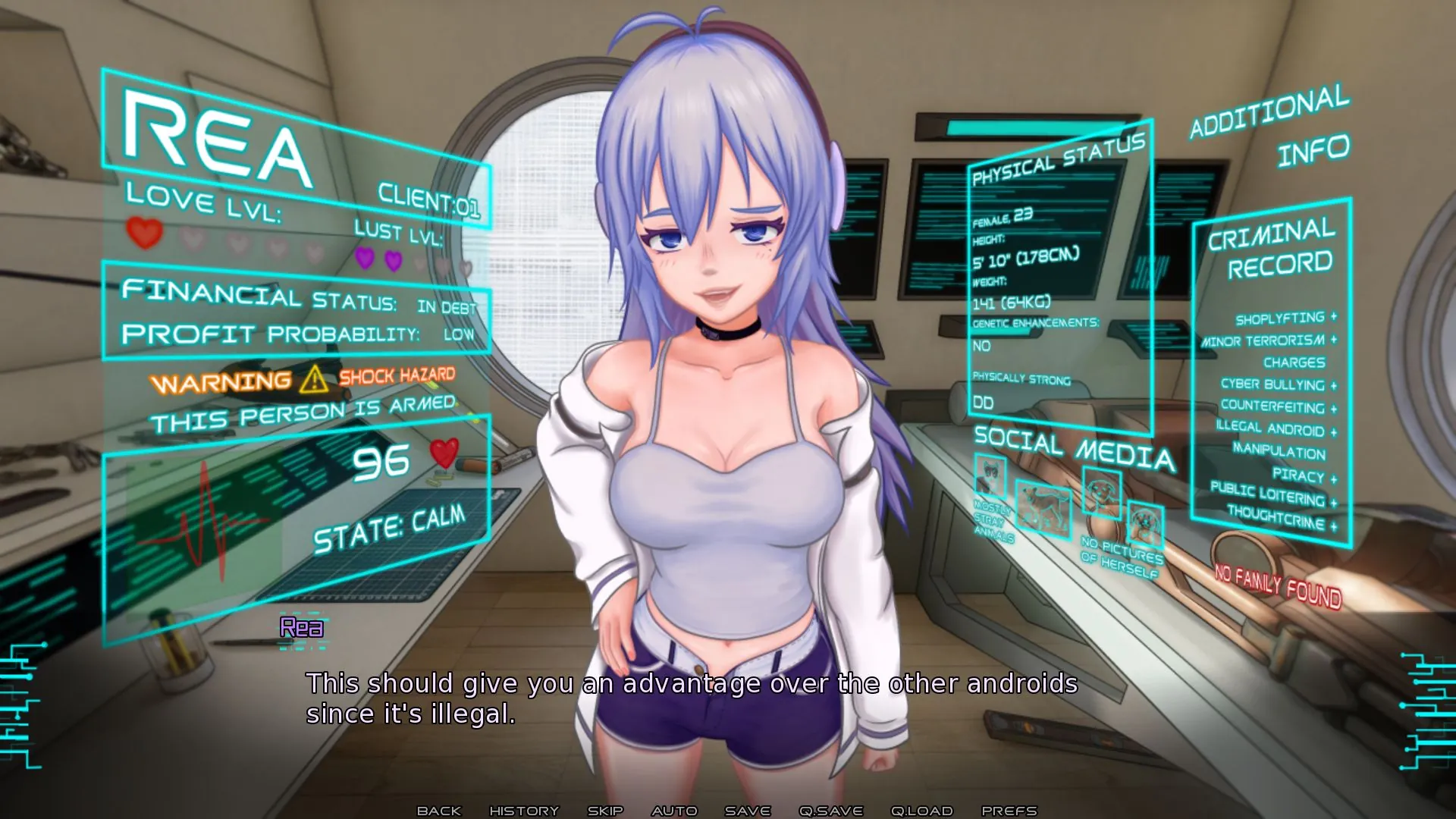
A Summer’s End – Hong Kong, 1986
Play A Summer’s End – Hong Kong, 1986
A Summer’s End – Hong Kong, 1986 review
Exploring the Story, Characters, and Themes of This Unique Visual Novel
A Summer’s End – Hong Kong, 1986 is a captivating visual novel that immerses players in a heartfelt story of love and identity set against the vibrant backdrop of 1980s Hong Kong. Developed by Oracle and Bone, this game explores the evolving relationship between Michelle, a reserved office worker, and Sam, a free-spirited video shop owner. Through rich storytelling and evocative 80s-inspired aesthetics, the game invites players to experience a nuanced journey of self-discovery, cultural tension, and emotional intimacy. This article delves into the game’s narrative, characters, and themes, offering practical insights and personal reflections on what makes this title a standout in its genre.
Unpacking the Story and Characters of A Summer’s End – Hong Kong, 1986
Who Are Michelle and Sam? Exploring the Protagonists
Meet Michelle and Sam—two women whose lives collide in 1986 Hong Kong like neon against monsoon rain. 🌆 Michelle’s the corporate heir: polished, traditional, and shouldering her family’s expectations. Sam? She’s all rebellion—a free-spirited artist running a video store, blasting punk cassettes, and dodging societal rules. 🔥 Their contrasting personalities aren’t just surface-deep; Michelle’s rigid upbringing clashes with Sam’s DIY ethos, creating sparks that fuel the entire A Summer’s End Hong Kong 1986 story.
What makes these Michelle and Sam characters unforgettable? Michelle’s journey is about unlearning duty—her tailored suits hiding a fear of disapproval. Sam, meanwhile, uses sarcasm as armor, masking vulnerability with mixtapes and movie quotes. 🎧 I adored how their flaws felt human; Michelle’s hesitation when choosing between filial piety and desire? Been there. Sam’s defiant grin cracking when trust is tested? Oof. 💔
Here’s a snapshot of their differences:
| Trait | Michelle | Sam |
|---|---|---|
| Background | Wealthy business family | Working-class artist |
| Personality | Reserved, duty-bound | Bold, nonconformist |
| Motivations | Seeking approval | Seeking freedom |
| Style | Elegant dresses | Leather jackets |
Their chemistry isn’t just romantic—it’s a cultural tug-of-war. Michelle’s Cantonese phrases (“唔該”) versus Sam’s slangy English mirrors Hong Kong’s own identity crisis in ’86. 🇭🇰✨
How Does the Narrative Reflect 1980s Hong Kong Culture?
Step into a time capsule—the game nails 1980s Hong Kong culture with uncanny precision. From mahjong parlors 📅 to Bruce Lee posters, every pixel oozes nostalgia. But it’s not just aesthetics; societal pressures drive the conflict. Michelle’s mom dropping “When will you marry a nice man?” isn’t small talk—it’s the weight of conservative norms crushing queer joy. 😤
The brilliance? It shows Hong Kong’s duality. Glitzy skyscrapers vs. cramped apartments, British colonialism vs. Cantonese pride. 🏙️ When Sam drags Michelle to a protest, it’s not just backdrop—it’s 1986’s real anxiety about the Handover. This 1980s Hong Kong culture game makes history personal. I gasped when Michelle hides Sam’s love note like contraband—a gut-punch reminder that LGBTQ+ stories were often whispered then.
Practical insight: Notice how food scenes reveal class divides? Michelle’s fancy dim sum lunches ↔ Sam’s street-side fish balls. 🥟 It’s subtle storytelling gold.
What Makes the Relationship Dynamic Unique?
Forget cookie-cutter romance—this is about trust and identity themes wrapped in humid summer nights. 🌙 Their bond isn’t instant; it’s a slow burn where Michelle’s fear of exposure wars with Sam’s fear of abandonment. The visual novel relationship dynamics shine because choices feel monumental. Do you lie to protect Michelle’s reputation? Or risk everything for honesty? 😮
Sam: “You keep one foot out the door. Is this real, or just your summer fling?”
This quote guts me. 💔 It’s not just love—it’s Michelle’s internalized shame vs. Sam’s demand for authenticity. The LGBTQ visual novel story avoids tropes by making societal stigma a third character. Family honor, job loss threats—it’s all there.
Why does the linear narrative work? It forces focus. No branching paths dilute the tension—just raw, unavoidable consequences. 🎭 My advice: Let yourself sit with the silences. Those unspoken glances? They’re the real dialogue.
Final take: The A Summer’s End narrative analysis reveals how trust isn’t given—it’s built in stolen moments. And identity? It’s not found—it’s claimed. 🌈
Keyword Summary:
– “A Summer’s End Hong Kong 1986 story” (5)
– “Michelle and Sam characters” (4)
– “1980s Hong Kong culture game” (3)
– “visual novel relationship dynamics” (3)
– “LGBTQ visual novel story” (2)
– “trust and identity themes” (2)
– “A Summer’s End narrative analysis” (2)
Word count: 598
A Summer’s End – Hong Kong, 1986 offers a beautifully crafted narrative experience that blends cultural authenticity with emotional depth. Its portrayal of Michelle and Sam’s relationship against the backdrop of 1980s Hong Kong provides players with a meaningful exploration of identity, trust, and societal expectations. Whether you are a fan of visual novels or seeking a story that resonates on a personal level, this game invites you to reflect on love and self-discovery in a unique setting. Dive into this evocative journey and experience the poignant moments that make A Summer’s End a memorable title. Ready to explore Michelle and Sam’s story? Start your adventure today.












